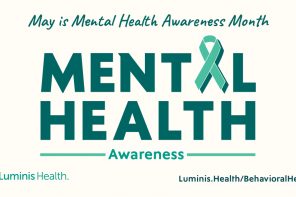Most of us wouldn’t think twice about seeing our doctor for stomach pain, a sports injury or the flu. But many people don’t get help for mental health concerns. Sometimes it’s the fear of a label, cultural stigma or worry over not getting the right treatment. Whatever the hesitation, it’s important to see a doctor who will treat both your physical and mental healthcare needs.
According to Raymond Hoffman, MD, medical director of the Division of Mental Health and Substance Use, your first call for mental health concerns can be to your primary care provider. “A primary care doctor can prescribe medications for many common mental health issues,” says Dr. Hoffman. He or she may also act as the point person for additional care, such as referring you to a therapist.
Regardless of who ultimately treats you, Dr. Hoffman notes that addressing mental health concerns involves entering into a trusting relationship with your healthcare provider, who supports healing and recovery.
Many of us think of mental healthcare as treating psychiatric illnesses such as bipolar disorder, major depression and psychosis. But it’s just as important to give attention to everyday concerns such as stress, seasonal depression and anxiety. Medical conditions such as diabetes, multiple sclerosis, Parkinson’s and heart disease can worsen depression or anxiety — and vice versa. That’s why it’s so important to seek treatment that takes your whole health into consideration.
MYTH: Mental health conditions are uncommon.
FACT: Mental illness is more common than most think. According to the National Alliance on Mental Illness, one in five Americans will experience mental illness in their lifetime, and one in 25 will experience a serious mental illness that interferes with their life.
MYTH: Mental health conditions are untreatable.
FACT: Many mental health conditions are not lifelong challenges and might only require treatment for a short time. With advances in modern care, you can successfully manage even chronic mental health conditions.
MYTH: Mental health conditions aren’t real medical conditions.
FACT: Just like heart disease and diabetes, mental illnesses are medical conditions. Primary care doctors and specialists can effectively treat them.
Where to start with mental health help
You don’t need to suffer through a mental health condition alone. Unless you’re dealing with a severe mental health issue, a good place to start is your primary care doctor. Your doctor will review your medical records, talk with you about new symptoms or concerns, and work with you to create a treatment plan.
If you already have a good relationship with your doctor, you may feel most comfortable talking to him or her. Your doctor may also better understand what stressors you’re dealing with at home and work, and how they affect your physical health.
In many primary care offices, a medical assistant screens patients for depression as part of the yearly well visit using a standardized screening tool. This two-question tool can provide information for a doctor to follow up. Doctors can use a more in-depth tool if the initial screening points to depression.
The good news for mental health
The good news is that mental health conditions are treatable. If your doctor identifies a mental health condition, he or she may provide brief counseling in the office, prescribe medication or refer you to a specialist. Your doctor may also suggest individual or group therapy. According to Dr. Hoffman, “The evidence shows that if most people who are suffering because of symptoms from mental health problems or substance abuse get help, they can be in less distress and function better.”
AAMC offers a range of services, such as:
- The J. Kent McNew Family Medical Center, a 16-bed mental health hospital for adults, is opening in March.
- Pathways, AAMC’s substance use and co-occurring mental health treatment facility
- Partnerships with the Department of Health and local mental health and substance use providers to connect patients to resources
- Anne Arundel Medical Group Mental Health Specialists, an outpatient mental health clinic for ages 3 and up
- AAMC Psychiatric Day Hospital, a partial hospitalization program
- The Recovery Navigator Program, which provides screenings and referrals in the primary care setting
- Introduction of mental health consultations in primary care offices
 Raymond Hoffman, MD, is the medical director of the Division of Mental Health and Substance Use.
Raymond Hoffman, MD, is the medical director of the Division of Mental Health and Substance Use.
Originally published Dec. 5, 2016. Last updated Feb. 10, 2020.




